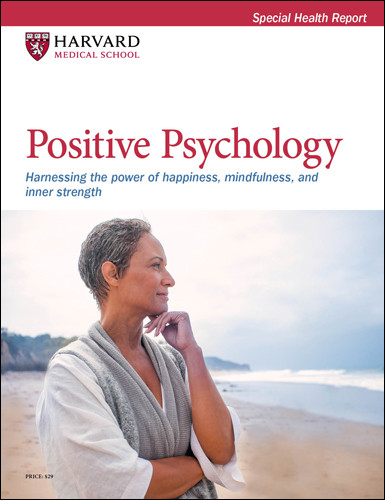Finding a higher meaning
Following a religious or spiritual practice is good for your physical and emotional health.
- Reviewed by Howard E. LeWine, MD, Chief Medical Editor, Harvard Health Publishing; Editorial Advisory Board Member, Harvard Health Publishing

As people age, they often reflect more on life and what their future may hold. "It's a critical transition stage of most people's lives, when they contemplate what everything means and what their role is in the world," says Tyler VanderWeele, Loeb Professor of Epidemiology at Harvard's T.H. Chan School of Public Health and director of the Human Flourishing Program at Harvard's Institute for Quantitative Social Science.
To help find these answers, many older adults turn to a religious or spiritual practice for guidance. But the benefits of this type of engagement can reach much further.
"Research continues to show that people who embrace some kind of religious or spiritual behavior are happier and have fewer health problems," says VanderWeele. "It seems that what is good for the soul is often good for the mind and body."
Comparing practices
The words religious and spiritual are often used interchangeably, but there are differences. Religion is often defined as a specific set of organized beliefs and practices, usually shared by a community or group and grounded in traditions, history, and institutions.
In comparison, spirituality is more of an individual practice. It has to do with having a sense of peace and purpose, although it also can be part of a shared community. "Spirituality also relates to developing beliefs around the meaning of life and connection with others, the world, and nature," says VanderWeele.
Although many people identify as both religious and spiritual, a recent survey from the Pew Research Center say 27% of adults think of themselves as spiritual but not religious.
How people practice their religion or spirituality also varies. They might attend services, participate in group activities and discussions, study privately, pray, or meditate.
Better life, better health
Studies have consistently found that religious or spiritual engagement is associated with longer and healthier life, less depression, and less substance abuse. "The current studies suggest that participating in a religious or spiritual community at least once a week is especially powerful," says VanderWeele.
Researchers often point to three characteristics that have the most significant impact on well-being. Here's a look at each.
Community involvement. The community environment is perhaps the strongest attraction of religious and spiritual practices. "It helps reorient people with shared common values, which can encourage more social interactions," says VanderWeele. Numerous studies have shown that a robust social life is linked with a lower risk of depression, dementia, heart disease, and early death.
Finding purpose. A practice can explore questions about one's role in the world and help people find their sense of purpose. "A strong sense of purpose means a desire to continue pursuing goals, feeling life is worthwhile, and having a general enthusiasm for living," says VanderWeele. "A religious or spiritual practice often helps people identify what is most important to them now and what they want to achieve in the time they have left." According to some research, people with a higher sense of purpose tend to live longer and have a lower risk of heart attack or stroke.
Getting through tough times. Religious or spiritual practices can help people navigate through turbulent times. "People often rely on their practice to gain the emotional support, insight, wisdom, and clarity one needs when faced with setbacks," says VanderWeele.
The practices especially are beneficial when someone is confronted with a severe illness, including having to make difficult medical decisions, according to a systematic review published online July 12, 2022, by JAMA. The researchers suggested that a patient's religion and spiritual background be incorporated into treatment plans, as it can help individuals feel connected to their medical care and increase their sense of control.
Not religious or spiritual?You still can tap into health benefits of religious or spiritual practice by engaging in similar social structures, according to Tyler VanderWeele, professor of epidemiology at Harvard's T.H. Chan School of Public Health. For instance, volunteer for an organization or favorite cause where you are likely to encounter people with related interests. "Or join a book club, men's club, or other groups that encourage conversation and discussion and the sharing of ideas and values," says VanderWeele. "Anything that can mimic both the social aspect and mental and emotional stimuli could be quite effective." |
Image: © SDI Productions/Getty Images
About the Author

Matthew Solan, Executive Editor, Harvard Men's Health Watch
About the Reviewer

Howard E. LeWine, MD, Chief Medical Editor, Harvard Health Publishing; Editorial Advisory Board Member, Harvard Health Publishing
Disclaimer:
As a service to our readers, Harvard Health Publishing provides access to our library of archived content. Please note the date of last review or update on all articles.
No content on this site, regardless of date, should ever be used as a substitute for direct medical advice from your doctor or other qualified clinician.
















